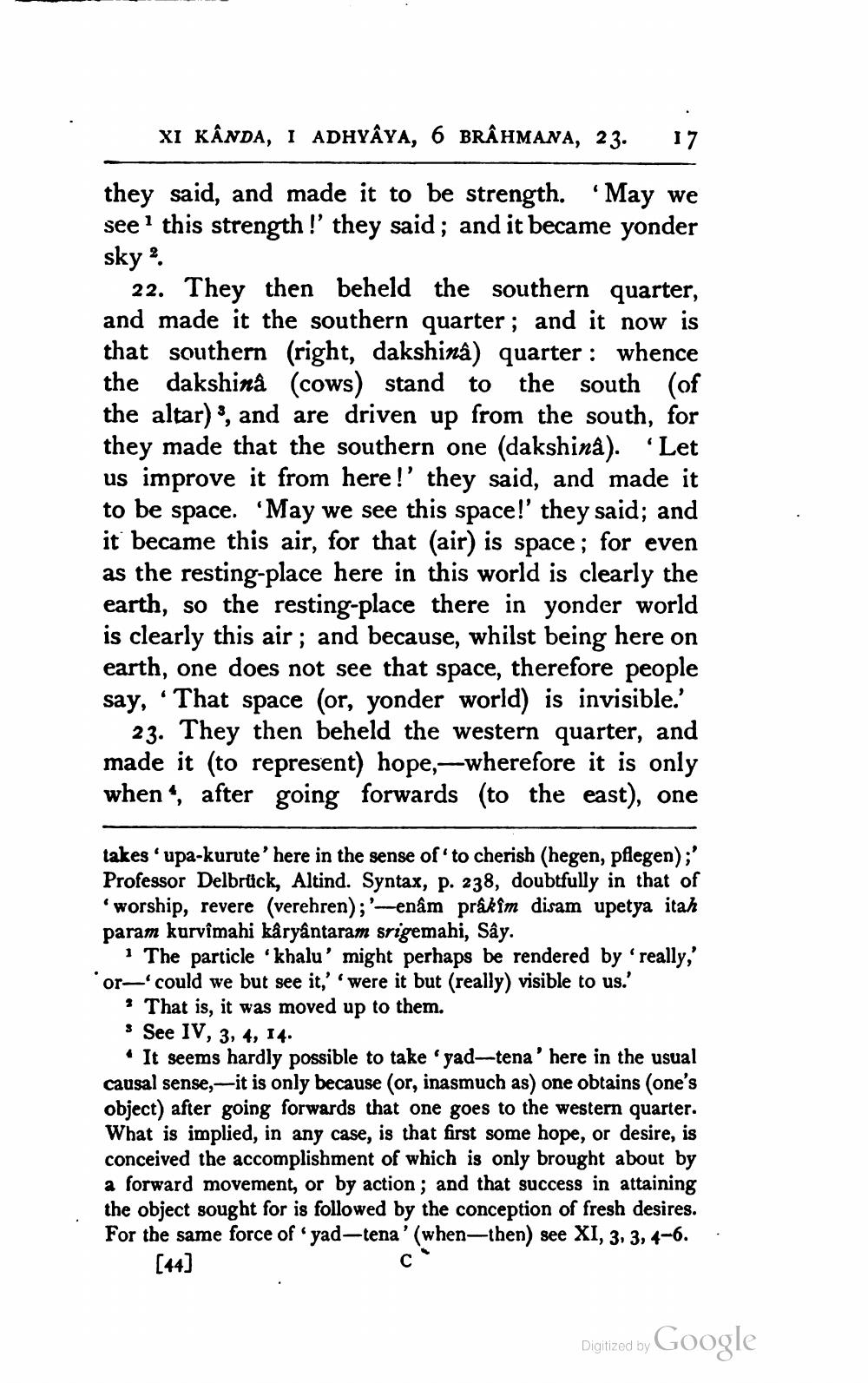________________
XI KÂNDA, I ADHYAYA, 6 BRAHMANA, 23.
17
they said, and made it to be strength. ‘May we see this strength!' they said; and it became yonder sky?
22. They then beheld the southern quarter, and made it the southern quarter; and it now is that southern (right, dakshina) quarter : whence the dakshina (cows) stand to the south (of the altar) >, and are driven up from the south, for they made that the southern one (dakshina). 'Let us improve it from here !' they said, and made it to be space. May we see this space!' they said; and it became this air, for that (air) is space; for even as the resting-place here in this world is clearly the earth, so the resting-place there in yonder world is clearly this air ; and because, whilst being here on earth, one does not see that space, therefore people say, “That space (or, yonder world) is invisible.'
23. They then beheld the western quarter, and made it (to represent) hope, -wherefore it is only when", after going forwards (to the east), one
takes ‘upa-kurute' here in the sense of to cherish (hegen, pflegen);' Professor Delbrück, Altind. Syntax, p. 238, doubtfully in that of 'worship, revere (verehren); '--enam pråkim disam upetya itah param kurvìmahi karyantaram sigemahi, Sây.
The particle .khalu' might perhaps be rendered by 'really, 'or—'could we but see it,' were it but (really) visible to us.'
· That is, it was moved up to them. * See IV, 3, 4, 14.
• It seems hardly possible to take 'yad-tena' here in the usual causal sense, --it is only because (or, inasmuch as) one obtains (one's object) after going forwards that one goes to the western quarter. What is implied, in any case, is that first some hope, or desire, is conceived the accomplishment of which is only brought about by a forward movement, or by action; and that success in attaining the object sought for is followed by the conception of fresh desires. For the same force of yad-tena' (when—then) see XI, 3, 3, 4-6..
[44]
Digitized by Google




